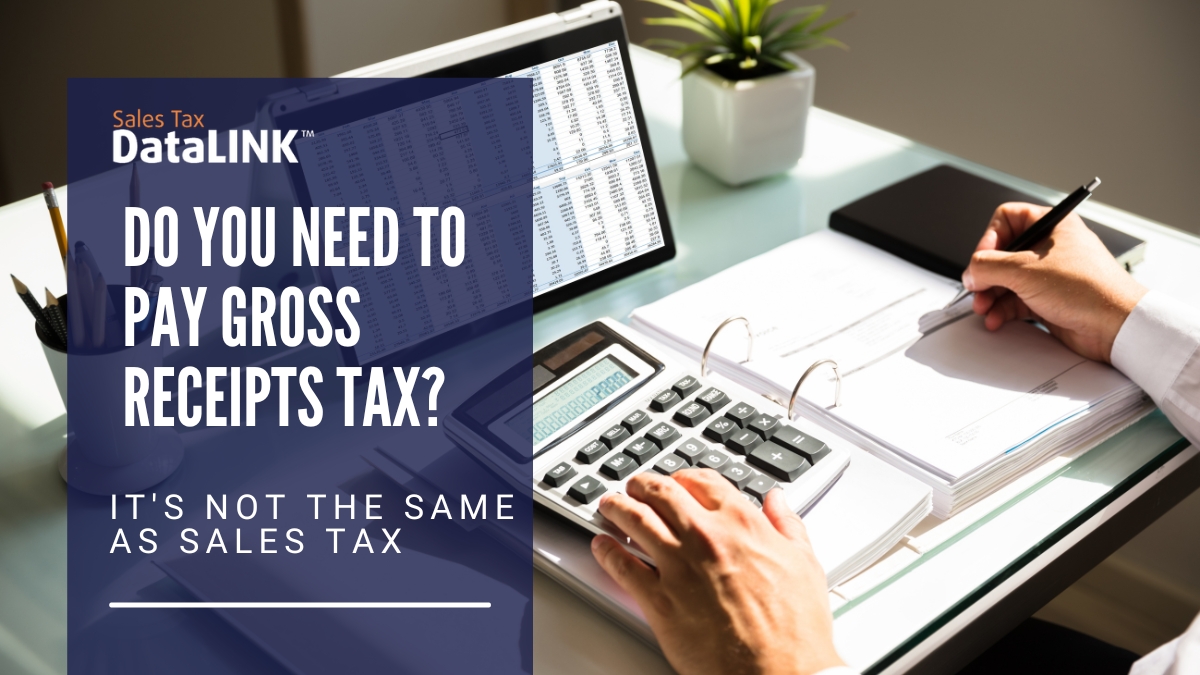Although we might think of gross receipts tax as the same as sales tax, there are a number of differences your business needs to keep in mind. Sales tax is not the same as gross receipts tax because of how and where the money to pay the tax comes from. Gross receipts tax is based on total revenue and directly affects the profits of a business. Gross receipts tax is paid by the business rather than by its customers and typically does not exempt many of the products and services that a sales tax law does. Additionally, rates for taxes on gross receipts tend to be lower than sales tax rates although they often are applicable to more transactions.
Sales Tax
Sales tax is a percentage of the purchase of certain goods and services that is collected from the customer on behalf of the state government. The amount being paid to the state is usually added at the register and thus does not negatively affect the profits of the business.
Because of this, it is important for businesses to separately manage what money is to be paid to the state and what sum is rightfully the company’s. Sales tax rates differ from jurisdiction to jurisdiction and even what goods or services are subject to sales tax can vary.
Gross Receipts Tax
Both sales tax and gross receipts tax are calculated as percentages of revenue. However, the two are inherently different. While sales tax amounts are additional charges to the consumer, gross receipts tax is subtracted from a company’s gross income when calculating its profit or loss.
That means that sales tax comes out of the customer’s pocket and gross receipts tax is considered a business expense or operating cost to be paid from what the business earns over the course of that tax period. Some states do not charge sales tax on services rendered, but you must still pay gross receipts taxes on the amount that you collect for those services. Gross revenue tax is also sometimes called “excise tax.”
Paying Gross Receipts and Sales Tax
Sales tax is typically paid to local agencies on a schedule determined by a business’s selling rate. The more you sell the more often you pay. Filing sales tax involves filling out a tax form listing sales volume and breaking down sales into categories that may be taxed at different rates. Sales tax amounts that are owed should match the amount of sales performed by the business.
Gross receipts tax, on the other hand, is often paid to multiple revenue agencies and each of these agencies may require separate filing and payment. If your business has revenues for sales, but not necessarily operating at net gain, you may be obligated to pay gross receipts tax. You may also find yourself responsible for paying taxes to county and city tax officials as well as state authorities.
Do I have to Pay Gross Receipts Tax?
Whether or not your business needs to pay gross receipts tax depends on your company’s nexus, the industry, and your state’s laws. For example, Alabama utility companies collect gross receipts tax. It’s best to check with local authorities to ensure your company complies with any gross receipts taxes.




